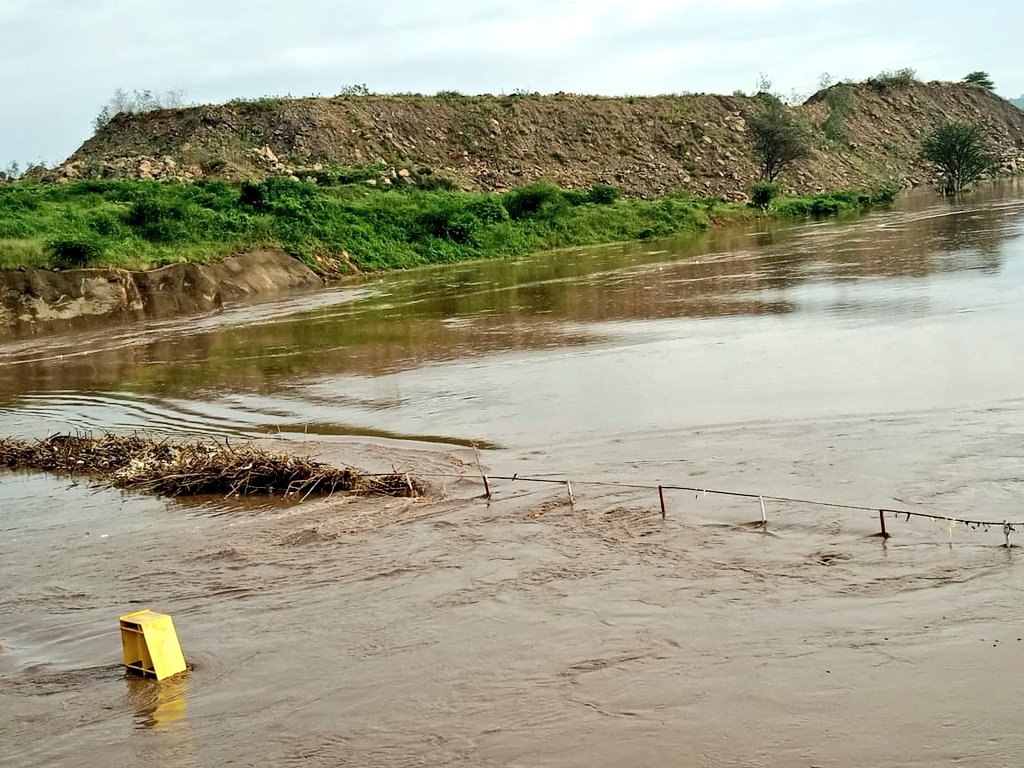News
Understanding The Causes Of Heavy Floods In Kenya

“The Secretary-General is deeply distressed to hear of the hundreds of lives lost and many others affected by heavy flooding in Burundi, Kenya, Somalia and Tanzania and other parts of East Africa,” the statement said.
The seasonal patterns are one of the factors. Africa is characterized by rainy seasons alternating with periods of no rain. In Kenya and several other eastern parts of the continent, the “long rains” season runs from March to May, while the “short rains” season runs from October to December.
Severe storms also marked the brief monsoon season of last year, particularly in November, in numerous regions of the country. The meteorological agency reported that several regions had over three times the long-term average rainfall.
These natural cycles are in turn influenced by other, larger patterns. In Kenya’s case, it’s the Indian Ocean Dipole, which is a shifting of sea surface temperatures that causes the western Indian Ocean to be warmer than normal and then colder than average than the eastern Indian Ocean. There are also stages to it — positive, neutral, and negative.
She further explained that increased evaporation of warmer waters brought on by the hotter atmosphere can result in more intense rains.
“El Nino has been a source of extreme weather patterns globally. These have the effect of undoing decades of developmental progress […],” said UN General Assembly President Dennis Francis.
Add the phenomenon to rainy seasons, Indian Ocean Dipole and climate change, and you have a recipe for disaster.
“In parallel, human-induced climate change is intensifying impacts of El Nino/La Ninaepisodes and increasing climate risks,” WMO Secretary-General Celeste Saulo noted.
However, these phenomena can be predicted “well in advance”, which can help reduce their consequences, Saulo added.
In the meantime, the country has to cope with the current crisis, which Kenya Meteorological Department predicts will last until June.
Kenya Insights allows guest blogging, if you want to be published on Kenya’s most authoritative and accurate blog, have an expose, news TIPS, story angles, human interest stories, drop us an email on [email protected] or via Telegram
-

 Grapevine1 week ago
Grapevine1 week agoAlleged Male Lover Claims His Life Is in Danger, Leaks Screenshots and Private Videos Linking SportPesa CEO Ronald Karauri
-

 Lifestyle2 weeks ago
Lifestyle2 weeks agoThe General’s Fall: From Barracks To Bankruptcy As Illness Ravages Karangi’s Memory And Empire
-

 Grapevine4 days ago
Grapevine4 days agoRussian Man’s Secret Sex Recordings Ignite Fury as Questions Mount Over Consent and Easy Pick-Ups in Nairobi
-

 Investigations2 weeks ago
Investigations2 weeks agoEpstein Files: Sultan bin Sulayem Bragged on His Closeness to President Uhuru Then His Firm DP World Controversially Won Port Construction in Kenya, Tanzania
-

 Business2 weeks ago
Business2 weeks agoKRA Can Now Tax Unexplained Bank Deposits
-

 Investigations1 week ago
Investigations1 week agoEpstein’s Girlfriend Ghislaine Maxwell Frequently Visited Kenya As Files Reveal Local Secret Links With The Underage Sex Trafficking Ring
-

 News1 week ago
News1 week agoState Agency Exposes Five Top Names Linked To Poor Building Approvals In Nairobi, Recommends Dismissal After City Hall Probe
-

 Investigations21 hours ago
Investigations21 hours agoMulti-Million Dollar Fraud: Three Kenyans Face US Extradition in Massive Cybercrime Conspiracy
















